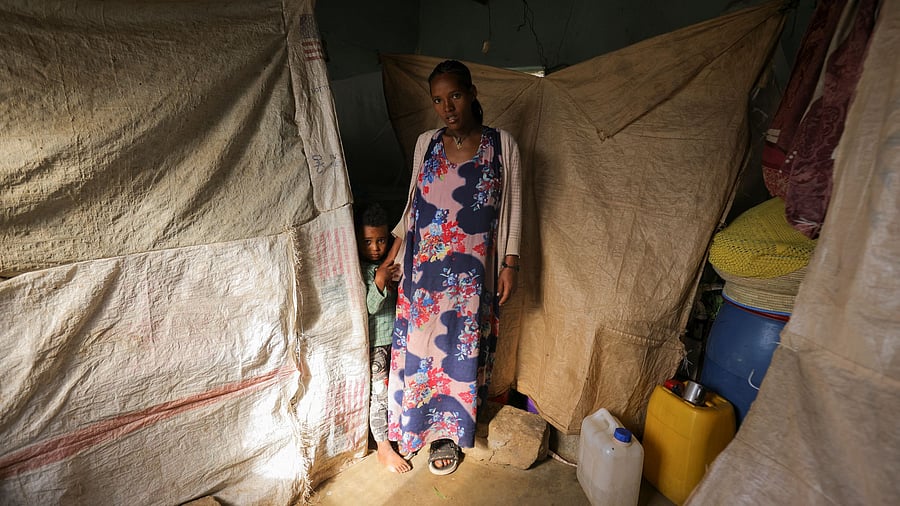
File photo of Tigrayan refugees from Ethiopia
Credit: Reuters Photo
Nairobi, Kenya -- For decades, sub-Saharan Africa was a singular focus of American foreign aid. The continent received more than $8 billion a year, money that was used to feed starving children, supply lifesaving drugs and provide wartime humanitarian assistance.
In a few short weeks, President Donald Trump and South African-born billionaire Elon Musk have burned much of that work to the ground, vowing to completely gut the US Agency for International Development.
"CLOSE IT DOWN!" Trump wrote on social media Friday, accusing the agency of unspecified corruption and fraud.
A federal judge on Friday halted, for now, some elements of Trump's attempt to shutter the agency. But the speed and shock of the administration's actions have led to confusion, fear and even paranoia at USAID offices across Africa, a top recipient of agency funding. Workers were being fired or furloughed en masse.
As the true scale of the fallout comes into view, African governments are wondering how to fill gaping holes left in vital services, like health care and education, that until recent weeks were funded by the United States. Aid groups and United Nations bodies that feed the starving or house refugees have seen their budgets slashed in half, or worse.
By far the greatest price is being paid by ordinary Africans, millions of whom rely on US aid for their survival. But the consequences are also reverberating across an aid sector that, for better or worse, has been a pillar of Western engagement with Africa for more than six decades. With the collapse of USAID, that entire model is badly shaken.
Experts say the agency's abrupt undoing will cost many lives by creating huge gaps in public services, especially in health care, where USAID has poured much of its resources.
"We are in disbelief," said Medhanye Alem of the Center for Victims of Torture, which treats survivors of conflict-related trauma at nine centers in northern Ethiopia, all now closed.
The most pressing challenge for many governments is not to replace the American staff members or money, but to save US-built health systems that are rapidly crumbling to the ground, said Ken O. Opalo, a Kenyan political scientist at Georgetown University in Washington.
Kenya, for instance, has enough drugs to treat people with HIV for more than a year, Opalo said. "But the nurses and doctors to treat them are being let go, and the clinics are closing."